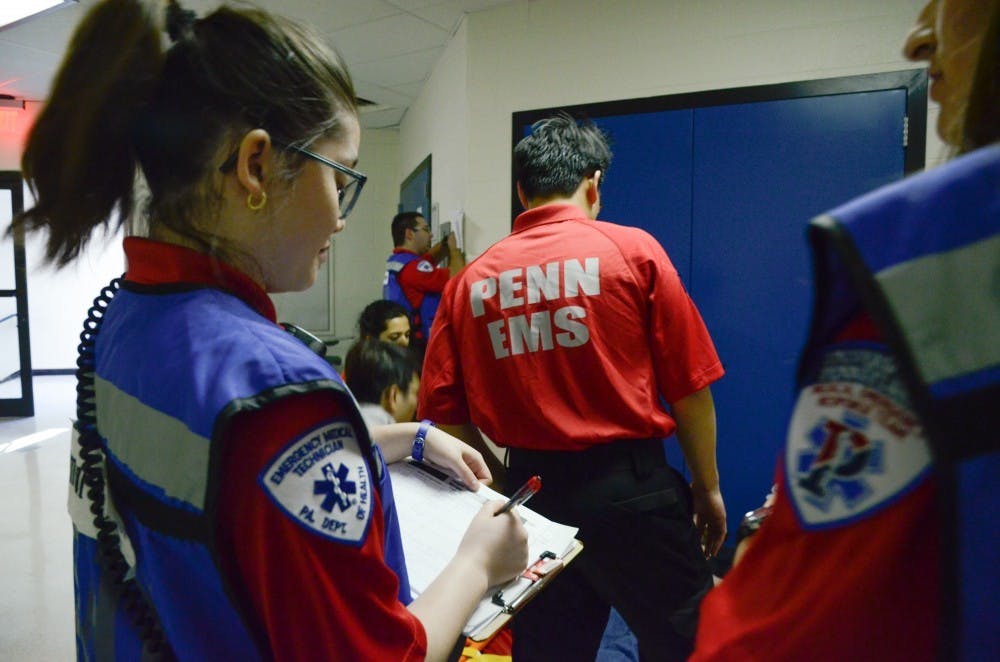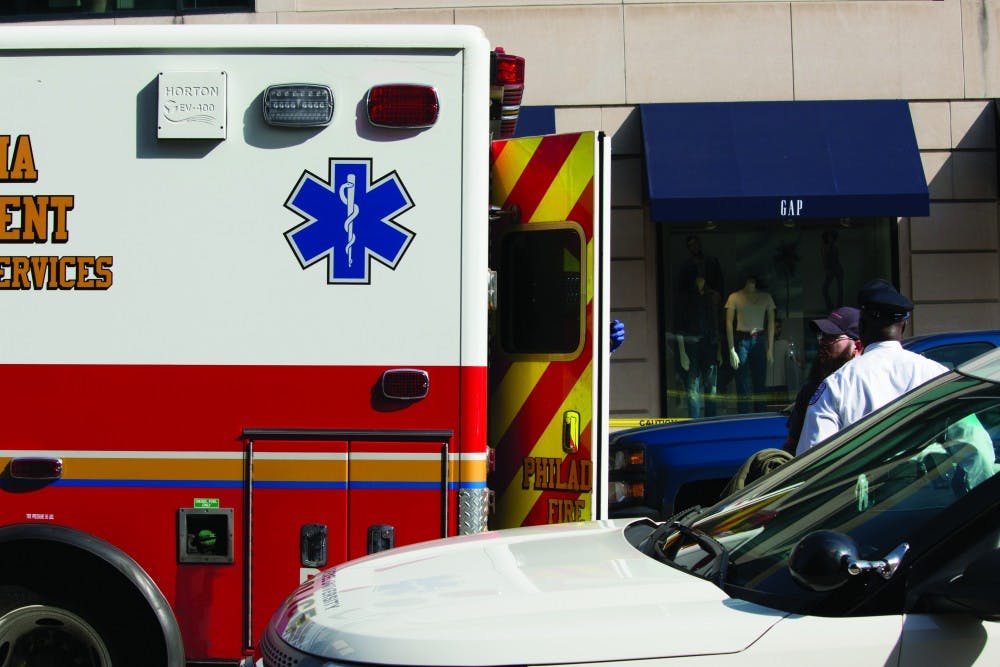
Penn has launched a new pilot program to provide free transport to students suffering from medical emergencies. For now, it will consist of one sports utility vehicle manned by a Philadelphia Fire Department paramedic lieutenant and an emergency medical technician.
Vice President for Public Safety and Superintendent of Penn Police Maureen Rush and Vice Provost for University Life Valarie Swain-Cade McCoullum announced the creation of this "Alternative Response Unit" in an email to undergraduates on Tuesday.
"Penn has long had a Medical Amnesty Policy to encourage students to seek medical treatment for themselves or their peers for intoxication, without fear of disciplinary action," Rush and McCoullum wrote. "We recognize, however, that there are other concerns, including the financial consequences of an ambulance ride to the hospital that may cause some to avoid seeking assistance."
The program will operate between 5 p.m. and 3 a.m. from Thursday evenings to Sunday mornings in portions of University City. The Unit will serve students suffering from any medical emergency — including those related to drugs and alcohol — without requiring them to pay transportation costs.
The ARU will consist of a Penn-sponsored SUV, and will transport student patients to the Hospital of the University of Pennsylvania. If HUP is too busy, additional patients will be admitted to the Penn Presbyterian Hospital.
In years past, students facing medical emergencies have been able to call on the Medical Emergency Response Team for free. Once the MERT team conducted a medical assessment, however, it might have had to call on the Philadelphia Fire Department to take the student to a hospital. The cost of this ambulance ride can range from $950 for Basic Life Support service to $1,170 for Advanced Life Support service, according to data from the Philadelphia Fire Department in 34th Street Magazine.
The fees are billed to the patient's insurance company, which can cover different portions of the cost depending on their plan.

“We became aware about a year ago that students were concerned about being MERTed," Rush said, adding that the Division of Public Safety has been working for the past nine months on this program, which will be the "first ever public-private partnership between Penn and the Philadelphia Fire Department."
According to the email announcement, the city's EMS staff will collaborate with DPS and MERT to respond to medical incidents within the boundaries of the Penn Patrol Zone stretching from 30th to 43rd streets as the east and west borders and from Market St. to Baltimore Ave. as the north and south borders.
At least for now, the ARU will consist of one SUV, Rush said.
“In our evaluation of medical transports, they were staggered enough in time that the ARU will be able to handle back to back cases," she said. When there are multiple medical emergencies occurring at the same time, additional students will be transported to the hospital via a Philadelphia Fire Department ambulance at no cost.
The ARU will also be staffed with a designated paramedic lieutenant and EMT who are trained to specifically handle medical situations faced by Penn students, Rush said. In the past, Philadelphia Fire Department officials have expressed annoyance with intoxicated Penn students throwing up in their vehicles, she added.
“The value of [having designated ARU staff] is also that these individuals will be in-tune and in-step with Penn police and MERT to ensure that they have the philosophy and understand that this is a student population in need of assistance,” Rush said.
"By seeking assistance, you are taking the first step to ensure the health and wellness of you or your friend," Rush and McCoullum wrote in their email. "As always, we encourage students seeking assistance with a drug or alcohol dependency to reach out for help."
The Daily Pennsylvanian is an independent, student-run newspaper. Please consider making a donation to support the coverage that shapes the University. Your generosity ensures a future of strong journalism at Penn.
Donate







